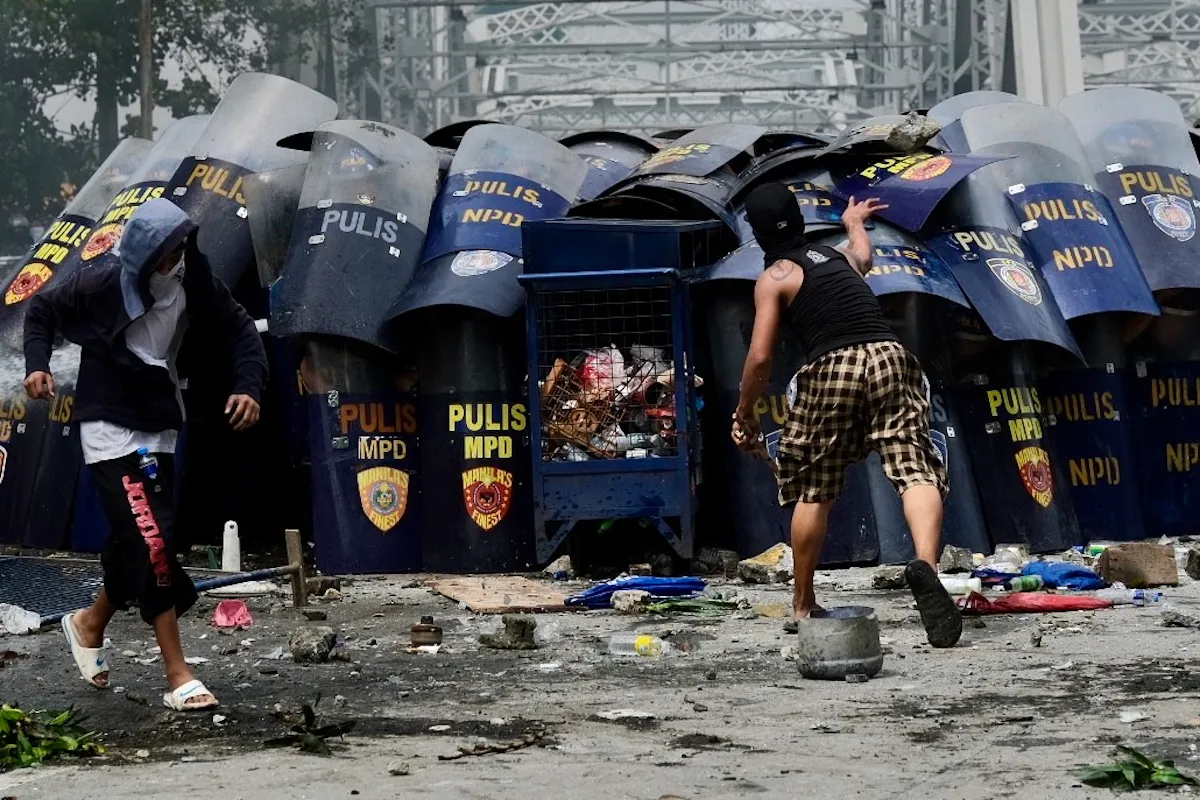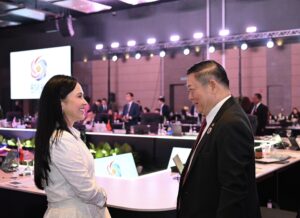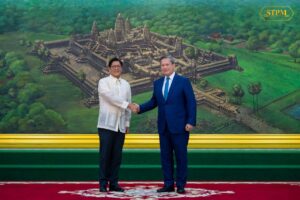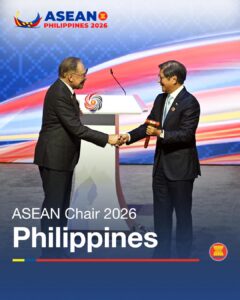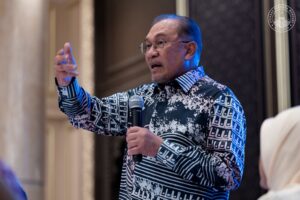Philippines looking like next powder keg to blow in Asia
MANILA – Tens of thousands of fed-up Filipinos took to various points in Manila on Sunday (September 21) for a day-long protest against alleged massive corruption tied to anomalous infrastructure projects that have led to a shakeup in Congress amid widespread calls for reforms.
Angry protesters, many garbed symbolically in black, torched a steel container van that police used to block a bridge leading to the presidential Malacañang Palace compound, while hurling bottles and rocks towards the police.
Protesters, mostly youths, engaged police in a violent cat-and-mouse game near the presidential palace that lasted until 8 pm. By day’s end, police said 49 people – 36 adults and 13 minors – were arrested for “violent behavior, including stone-throwing and acts of arson.” At least 70 police officials were injured.
Acting national police chief Lieutenant General Jose Melencio Nartatez Jr said: “Our police units worked hard to keep everyone safe today. While there were some isolated incidents, including a trailer truck set on fire at Ayala corner Romualdez by a few unruly protesters, most rallies went on peacefully because many participants cooperated with the authorities.”
There were more than 60,000 protesters scattered in different locations in and around Manila. More than 50,000 police personnel were deployed across the country, with 29,300 stationed in Metro Manila alone as part of Civil Disturbance Management (CDM) units.
The protests came weeks after Filipinos were treated to nationally-televised sessions in the Senate and the House of Representatives, where officials from the public works department testified about the implementations of billions of dollars worth of “ghost” infrastructure projects.
President Ferdinand Marcos Jr, whose father was ousted by a “people power” revolt in 1986 that ended his two-decade dictatorship, ironically placed the corruption issue front and center after an address before Congress in July that came in the wake of deadly floods that hit parts of the capital city.
His cousin, Martin Romualdez, has since been replaced as speaker of the House after his name was implicated in the anomaly, while at least two senators were also named as among those involved.
While on the surface Marcos has appeared to be on the right track, questions about his motives remain. After all, his family was considered among the most corrupt in the world, and various estimates have placed his father’s ill-gotten wealth at over US$10 billion.
Demands for them to return the funds have so far fallen on deaf ears, and after a brief period of exile, members of the Marcos clan are back in power. Opposition congresswoman Leila de Lima said that while Marcos had allowed the protests to proceed, he may have underestimated public anger boiling under the surface.
“It’s our moral duty. It’s our duty as a people. We need to do something. We need to express our anger, our rage. Everything was happening now all this widescale corruption, which I consider the biggest corruption scandal in our history,” De Lima told Asia Times speaking before a peaceful crowd, away from the mob that engaged the police.
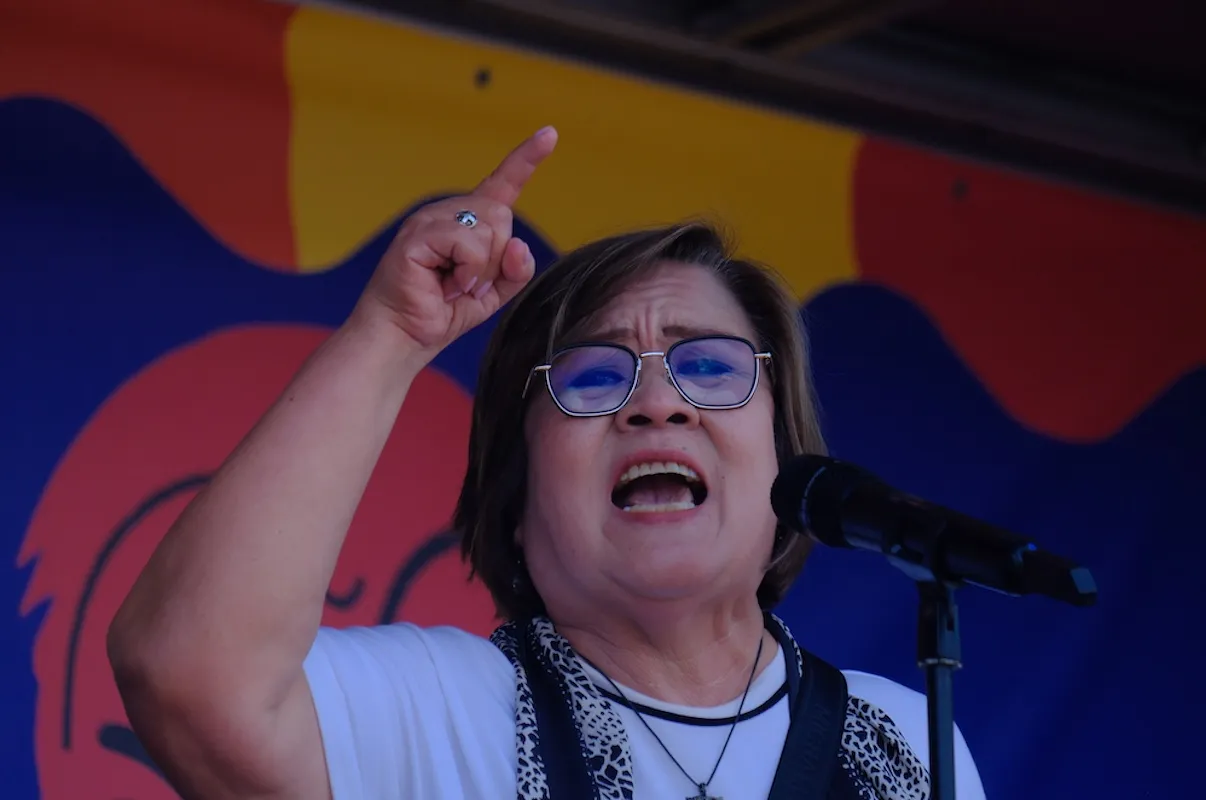
She noted that the Philippines was also commemorating the 53rd anniversary when Marcos’ father and namesake, Ferdinand E Marcos, declared martial law. Thousands of people were killed or went missing under his brutal regime, while the country was plunged into poverty and the Marcos family enriched itself.
Marcos Sr was ousted in 1986 and fled into exile in Hawaii, where he perished three years later. But his flamboyant wife, Imelda, and three children were allowed to return home. In 2022, they reclaimed lost political clout, with Marcos Jr winning the presidency, his sister a Senate seat, his son a congress seat, while his cousin took the House speakership.
“It is but imperative. It is but right that we gather today and express our voice, express our thoughts, express our feelings, sentiments and rage over this corruption issue,” said De Lima, a former justice secretary and political prisoner under the previous Duterte administration on trumped-up drug charges.
“We cannot let this go,” she said, adding that investigations “must result in concrete action” and lead to the jailing and conviction of allegedly corrupt officials. “If that is not done, it would be unacceptable to the people.”
She warned that if the issue is not properly handled, public anger could grow and further lead to massive destabilizing protests – similar to what recently occurred in Indonesia and Nepal.
Marcos Jr has surprised many with his style of governance and by ending his coalition with the Duterte family. His allies in Congress impeached his popular Vice President Sara Duterte on graft accusations, and handed his father, ex-leader Rodrigo Duterte, to the International Criminal Court for thousands of deaths under his regime’s war on drugs campaign.
He has also repaired ties with the United States that were strained under Duterte, who leaned more toward China, and has embraced the international community’s help against Beijing in the South China Sea.
Veteran activist Teddy Casino stressed that the Marcos family should come clean and return the stolen wealth to the Philippines; otherwise, Marcos Jr’s professed anger over corruption rings hollow.
“He should show us that he really is serious in this rebranding of himself as an anti-corruption advocate,” he told Asia Times. “And so the jury is still out.”
His allies, meanwhile, are using the corruption scandal to fling mud at each other, and “at the end of it all, it will be the small fish who will be held accountable,” Casino predicted.
Last week, Marcos Jr said he would not stop street protests from happening, as long as they remained peaceful.
“You have to remember, I brought this up and it is my interest that we find the solution to what has become a very egregious problem. And since this has all been exposed, well, it’s actually known to many people, but it has now been exposed to the general public,” Marcos has said.
“Do you blame them for going out into the streets? If I wasn’t president, I might be out in the streets with them,” the president said.
He has also created a three-member commission to carry out an investigation that will run parallel to those being carried out in the legislature. The panel would be empowered to summon officials as well as recommend charges.
Last month, Marcos disclosed the results of an internal audit into flood control projects that revealed patterns of irregularity that prompted calls for action from business and civil society groups outraged by what they describe as massive corruption.
Key findings showed that out of 545 billion pesos ($9.54 billion) of spending on flood control since 2022, thousands of projects were either substandard, poorly documented or even non-existent.
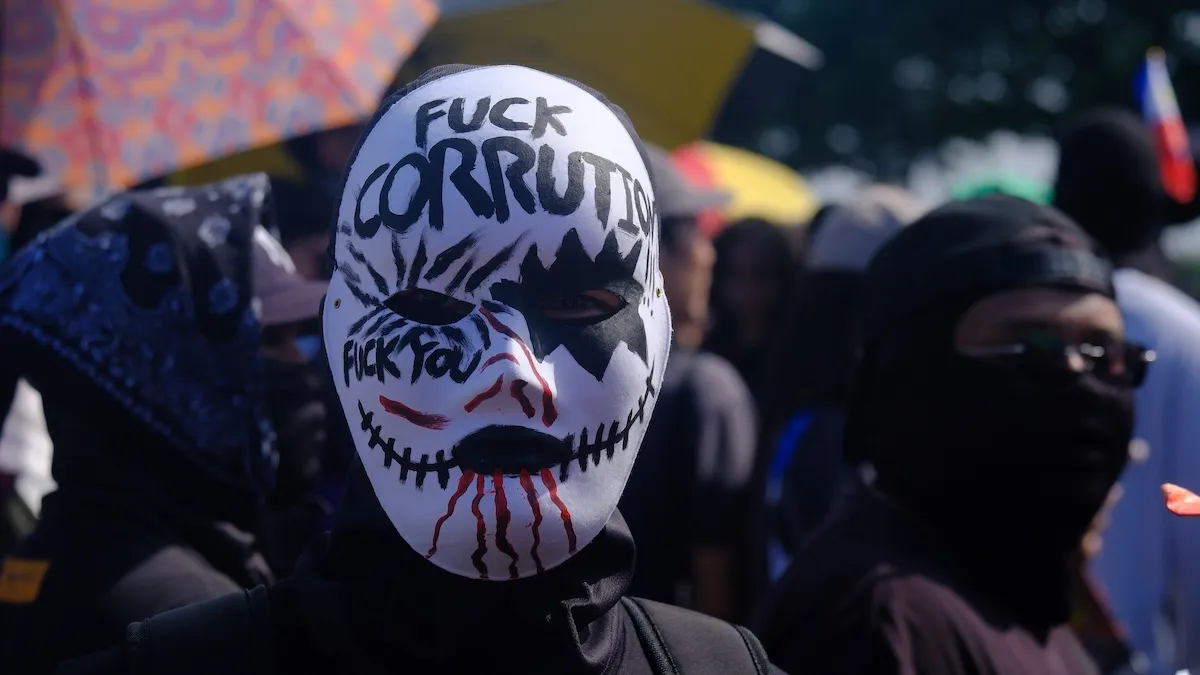
Some recorded identical costs even though they were in different locations, and 15 out of more than 2,000 accredited contractors were able to corner 20% of the total budget.
Many of the flood control initiatives were tagged as “ghost projects” where funds spent were divided among corrupt officials, who allegedly gave kickbacks to some politicians.
The controversy has already led to the resignation of the public works secretary, and his successor has suspended all bidding for locally-funded flood control projects, ordered courtesy resignations of all public works officials and vowed to permanently blacklist contractors involved in fraudulent projects.
Jason Gutierrez was head of Philippine news at BenarNews, an online news service affiliated with Radio Free Asia (RFA), a Washington-based news organization that covered many under-reported countries in the region. A veteran foreign correspondent, he has also worked with The New York Times and Agence France-Presse (AFP).
Source: Asia Times

